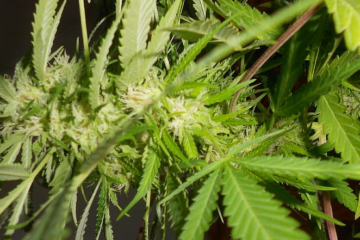Israel’s economy ministry has launched an investigation into the possible dumping of low-priced Canadian cannabis into the Israeli market, raising concerns among local industry leaders and Australian exporters.
What is dumping and why is it harmful?
Dumping is a trade practice where a country exports a product at a price lower than the normal value in the domestic market or the cost of production, in order to gain an unfair competitive advantage or to harm the domestic industry of the importing country.
Dumping can have negative effects on the local industry, such as reduced profits, lower sales, loss of market share, reduced employment, and lower investment. Dumping can also distort the international trade and create unfair competition among countries.
Why is Israel investigating Canadian cannabis imports?
Israel is one of the largest markets for medical cannabis in the world, with an estimated 70,000 patients and a potential market size of $1.1 billion by 2024. Israel is also a pioneer in cannabis research and innovation, and has a vibrant local industry with over 100 licensed growers and 15 licensed processors.
However, in recent years, Israel has also become a major destination for Canadian cannabis exports, which have increased significantly since Canada legalized recreational cannabis in 2018. In 2020, Israel imported about 21,000 kilograms of cannabis from Canada for commercial and scientific use, accounting for more than one-third of all Canadian cannabis exports by weight.

Some Israeli industry players have complained that the Canadian imports are undercutting the local prices and harming the domestic producers, who have to comply with strict regulations and high production costs. They have also accused the Canadian exporters of dumping their surplus cannabis into the Israeli market, taking advantage of the favorable exchange rate and the lower taxes.
In response, the commissioner of Israel’s Trade Levies Unit opened a formal anti-dumping investigation in mid-January, after finding “a causal link” between the Canadian imports and the “damage” to the Israeli industry. The investigation will cover the period from January 1, 2020 to December 31, 2020 for the dumping activities, and from January 1, 2018 to December 31, 2020 for the injury assessment.
What are the implications of the investigation for Canada and Australia?
The investigation could have serious implications for Canada’s cannabis exports sector, which is already facing challenges such as oversupply, regulatory barriers, and competition from other countries. If the Israeli authorities find evidence of dumping and injury, they could impose anti-dumping duties on the Canadian imports, which could make them less competitive or even unviable in the Israeli market.
Canada’s government has expressed its disappointment with Israel’s decision, and said it will engage with the affected Canadian exporters to review the details of the investigation and provide support. Canada has also defended its cannabis exports as being compliant with the international trade rules and the United Nations drug conventions.
Australia, which is another major exporter of medical cannabis to Israel, is also watching the investigation closely, as it could have implications for its own trade relations with Israel. Australia exported about 2,500 kilograms of cannabis to Israel in 2020, making it the second-largest source of cannabis imports after Canada.
Australia’s industry leaders have said they are confident that their exports are not involved in any dumping practices, and that they offer high-quality products at competitive prices. They have also said they hope the investigation will not affect the existing trade agreements between Australia and Israel, which have been beneficial for both countries.
What are the next steps and the expected outcomes of the investigation?
The investigation is expected to take up to 12 months, during which the Israeli authorities will collect and analyze information, evidence, and arguments from the interested parties, including the Canadian exporters, the Israeli importers, the Israeli producers, and the Canadian government.
The Israeli authorities will also determine whether provisional measures are required, and the estimated rate of the anti-dumping duty, which could be imposed as a provisional duty until the final determination is made.
The final determination will depend on the findings of the investigation, and the recommendations of the Trade Levies Unit and the Advisory Committee on Trade Policy and Trade Agreements. The final decision will be made by the Minister of Economy and Industry, who has the authority to impose, modify, or terminate the anti-dumping duty.
The possible outcomes of the investigation could range from no duty, to a partial duty, to a full duty, depending on the degree of dumping and injury found. The duty could also be subject to review, appeal, or suspension, depending on the circumstances and the requests of the parties.



